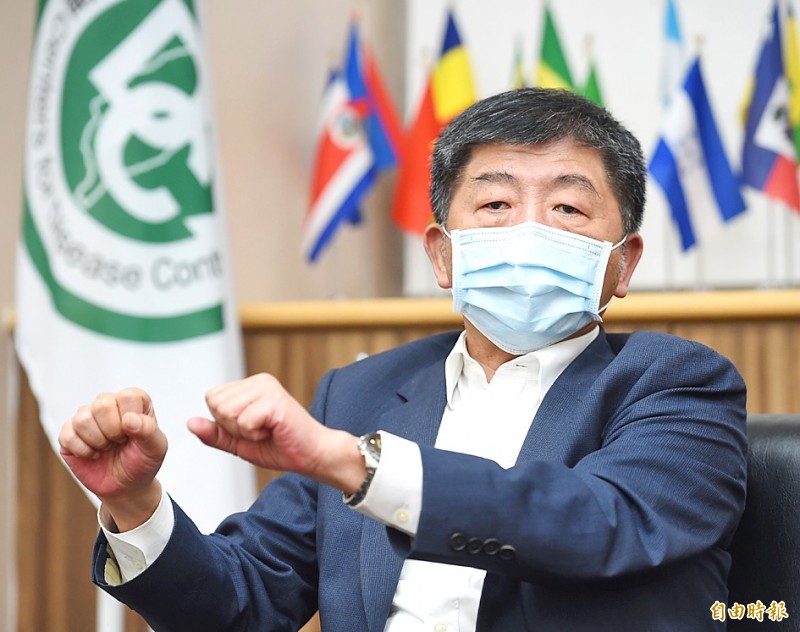《TAIPEI TIMES》 Taiwan’s medical system must be bolstered: Chen

Minister of Health and Welfare Chen Shih-chung gestures during an interview with the Liberty Times in Taipei on Friday last week. Photo: Liu Hsin-de, Taipei Times
‘WORKLOAD’: The nation’s medical system is efficient, but operating at peak performance at all times creates problems when extra challenges arise, the minister said
By Jennifer Huang, Wu Liang-yi and Jake Chung / Staff reporters, with staff writer
The COVID-19 pandemic has shown that the nation’s medical system must be bolstered to shoulder disease prevention duties ranging from border controls to aiding local communities, Minister of Health and Welfare Chen Shih-chung (陳時中) said.
Chen, who heads the Central Epidemic Command Center, made the remarks in an interview with the Liberty Times (sister newspaper of the Taipei Times) on Friday.
Disease prevention efforts should not have to erode the provision of medical resources to the public, Chen said.
A majority of Taiwan’s medical industry is in private hands and benign competition keeps the industry at peak efficiency, he said.
“However, being overly efficient might become a problem during pandemics, as the extra work — piled on an already heavy workload — lowers the original capability the industry could have offered,” Chen said.
Giving an example, Chen said the US medical system is strong and efficient, but as can be seen during the pandemic, most of it has closed down, collapsing under the weight of epidemic prevention, an influx of COVID-19 patients and other severe illnesses.
Likewise, Taiwan’s medical system is wound too tight and its focus on peak efficiency would mean that when the time comes, its peak performance would be insufficient, Chen said.
One method of resolving this issue is to boost government involvement, Chen said, adding: “We must leave room to do more, when it is necessary.”
Regarding the improvement of disease prevention institutions, Hospital and Social Welfare Organizations Administration Commission Director Wang Pi-Sheng (王必勝) said that besides sufficient funding and staff, public hospitals are in urgent need of systemic reforms.
Public hospitals are comprised of ministry-operated hospitals, military hospitals, veterans’ hospitals, university-affiliated hospitals, and county or city hospitals, but they cannot collaborate, as they operate under different hierarchies, he said.
If these could be integrated or grouped under an independent bureau-level organization, their overall efficiency would increase, Wang said.
Turning to the issue of overseas Taiwanese visiting Taiwan to use the nation’s medical resources, while a majority of COVID-19 cases having been imported from abroad, Chen said that most coronavirus patients are being treated using state funding and are not related to the National Health Insurance (NHI) program.
However, the pandemic has highlighted a problem in the NHI system, which is insufficient funding, he said.
Some have called for raising NHI premiums, but they must realize that there would be a certain amount of wastage, as the NHI uses a third-party payment system, Chen said.
For some, the waste is intentional, but for others, it is an institutional problem, he said, adding that if the premiums are raised too much, it would hurt those who have done nothing wrong.
Whether the system should be changed and what changes need to be made should be discussed, he added.
Additional reporting by Lin Hui-chin
新聞來源:TAIPEI TIMES



















